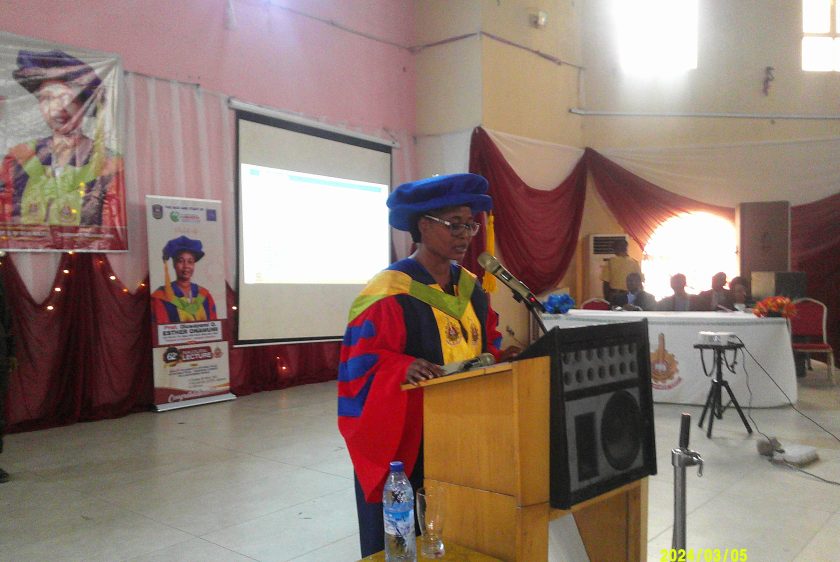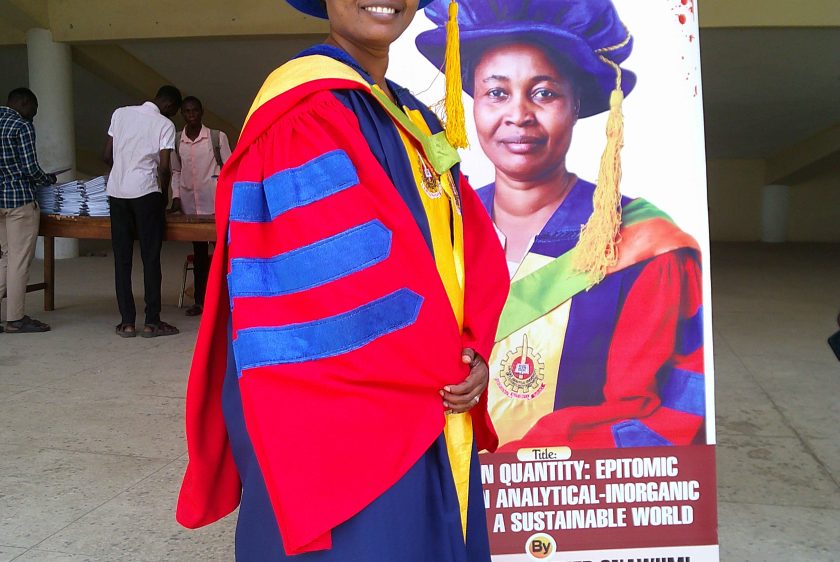

Prof. Oluwayemi Olanike Esther Onawumi delivered the 62nd Inaugural Lecture on March 6, 2025, at The Great Hall, Ladoke Akintola University of Technology (LAUTECH), Ogbomoso, Oyo State, Nigeria. She made history as the first female scholar to present an inaugural lecture in the Faculty of Pure and Applied Sciences, the Department of Pure and Applied Chemistry, and the Analytical Chemistry unit.
Her lecture, titled “Quality in Quantity: Epitomic Focus of an Analytical-Inorganic Chemist in a Sustainable World,” explored her research contributions in alignment with the United Nations Sustainable Development Goals (SDGs). She emphasized SDGs related to Life on Land (Goal 15), Clean Water and Sanitation (Goal 6), Responsible Consumption and Production (Goal 12), Good Health and Well-being (Goal 3), Zero Hunger (Goal 2), and Industry, Innovation, and Infrastructure (Goal 9). Through her work, she seeks to harness the transformative power of chemistry to drive sustainable solutions for humanity.
Her research delves into the interconnections between environmental monitoring, human health, the circular economy, and the synthesis of mixed-ligand complexes for analytical and antimicrobial applications. She highlighted that mineral compounds are non-biodegradable and accumulate in the environment, ultimately entering the food chain and posing a risk to human health. Her findings reinforce the notion that human activities are central to environmental pollution.
Additionally, Prof. Onawumi studied medicinal plants to analyze their phytochemical and nutritional composition, affirming nature’s provision for human sustenance. She also emphasized that the synthesis of mixed-ligand complexes requires a precise balance of reagents to achieve quality crystal formation, further illustrating the interplay between quantity and quality in scientific research.
She concluded by urging individuals to be intentional in their actions, emphasizing the need for a future where quality and quantity coexist harmoniously, ensuring that every decision—no matter how small—creates a lasting positive impact.
As part of her lecture, she presented eight key recommendations to governments, institutions, industries, researchers, and communities to foster a more sustainable and scientifically driven society.

